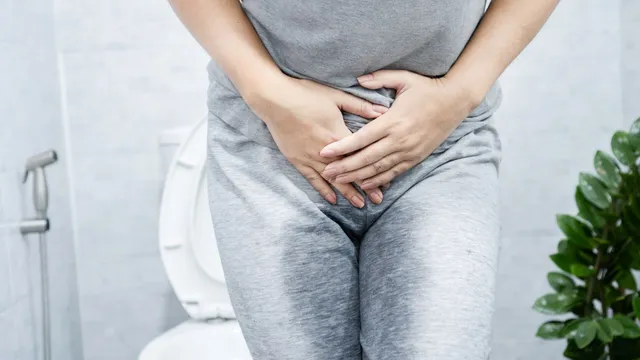- By Bornika Das
- Wed, 11 Jun 2025 06:35 PM (IST)
- Source:JND
Urinary incontinence, the involuntary leakage of urine, is a common yet often under-discussed health concern that affects millions of people across all age groups, especially women. While it can be caused by various factors such as age, pregnancy, childbirth, obesity or underlying medical conditions, its impact on quality of life can be profound. Embarrassment, social withdrawal and emotional distress are common side effects, which is why many people seek discreet and effective ways to manage the condition without immediately turning to surgery or medications.
The good news is that in many cases, urinary incontinence can be significantly improved or even prevented through simple yet powerful lifestyle changes. These natural strategies can enhance bladder control and restore confidence. In conversation with The Daily Jagran, Dr. Deepti Sureka, Consultant Female Urologist, Asian Institute of Nephrology and Urology, Hyderabad, shares evidence-backed lifestyle tweaks that can make a real difference in managing urinary incontinence naturally.
Lifestyle Changes To Control Urinary Incontinence Naturally
Maintain A Healthy Weight
Excess body weight, especially around the belly, increases pressure on the bladder and pelvic floor muscles. Dr. Deepti Sureka states, “Losing even a small amount of weight can help reduce incontinence episodes significantly.”
Practice Bladder Training
Bladder training involves gradually increasing the time between bathroom visits to regain control over bladder function. Start by urinating every 2 hours, and slowly extend the interval. This can help decrease urgency and frequency.
Limit Bladder Irritants
Certain foods and beverages can irritate the bladder lining and worsen symptoms. Dr. Deepti Sureka mentions, “These include caffeine (found in coffee, tea, and energy drinks), alcohol, spicy foods, citrus fruits and artificial sweeteners. Identifying and avoiding your triggers can lead to noticeable improvement.”
Stay Hydrated Smartly
Many people with incontinence reduce their fluid intake, hoping to lessen leakage. However, dehydration concentrates the urine and irritates the bladder. Instead, drink moderate amounts of water (6–8 cups/day) and spread intake throughout the day, avoiding large amounts before bedtime.

Lifestyle Changes To Manage Urinary Incontinence (Image Credits: Canva)
Strengthen Your Pelvic Floor
Pelvic floor exercises (Kegels) help strengthen the muscles that support the bladder and urethra. Dr. Deepti Sureka says, “When done correctly and consistently, these exercises can significantly reduce both stress and urge incontinence.” A physiotherapist specialising in pelvic health can offer guidance.
Quit Smoking
Smoking contributes to chronic coughing, which weakens pelvic floor muscles over time and can exacerbate incontinence. Moreover, nicotine itself may irritate the bladder.
ALSO READ: Expert Insights On Understanding Urine Odour And Identifying Urinary Tract Infections (UTI)
Manage Constipation
Straining during bowel movements can put pressure on pelvic muscles and worsen incontinence. A high-fibre diet, plenty of fluids, and regular physical activity can help maintain regular bowel habits.
Urinary incontinence is manageable, and in many cases, reversible with proper lifestyle modifications. If you’re struggling with symptoms, consult a urologist for a thorough evaluation. Early intervention, coupled with healthy habits, can significantly enhance your quality of life and restore your confidence.

